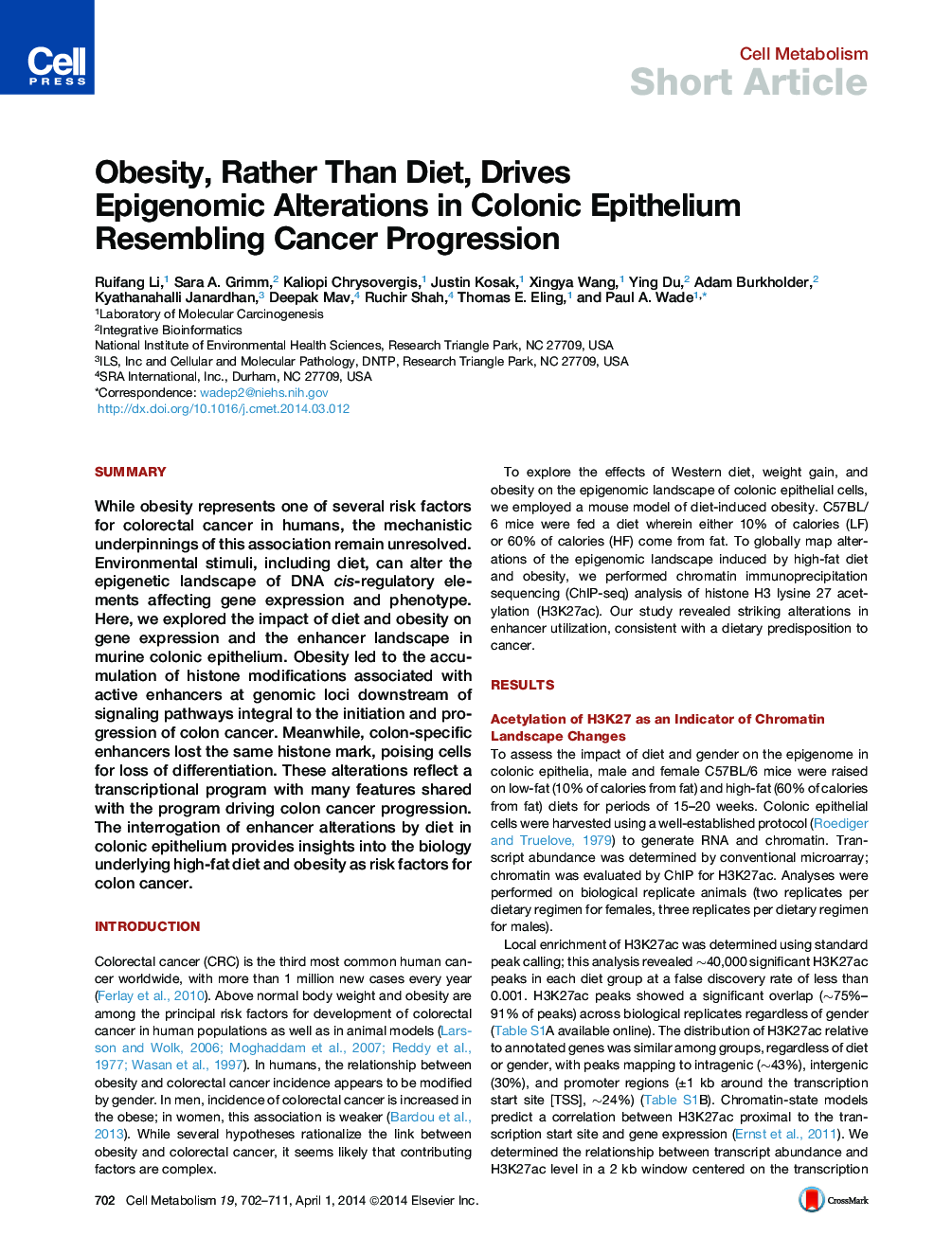| Article ID | Journal | Published Year | Pages | File Type |
|---|---|---|---|---|
| 2792671 | Cell Metabolism | 2014 | 10 Pages |
•Obesity alters the enhancer landscape of colonic epithelium•These alterations resemble the enhancer signature in colon cancer•The enhancer landscape reflects an expression program resembling cancer progression•Obesity, not diet, appears to be the relevant driver of epigenomic alterations
SummaryWhile obesity represents one of several risk factors for colorectal cancer in humans, the mechanistic underpinnings of this association remain unresolved. Environmental stimuli, including diet, can alter the epigenetic landscape of DNA cis-regulatory elements affecting gene expression and phenotype. Here, we explored the impact of diet and obesity on gene expression and the enhancer landscape in murine colonic epithelium. Obesity led to the accumulation of histone modifications associated with active enhancers at genomic loci downstream of signaling pathways integral to the initiation and progression of colon cancer. Meanwhile, colon-specific enhancers lost the same histone mark, poising cells for loss of differentiation. These alterations reflect a transcriptional program with many features shared with the program driving colon cancer progression. The interrogation of enhancer alterations by diet in colonic epithelium provides insights into the biology underlying high-fat diet and obesity as risk factors for colon cancer.
Graphical AbstractFigure optionsDownload full-size imageDownload high-quality image (223 K)Download as PowerPoint slide
